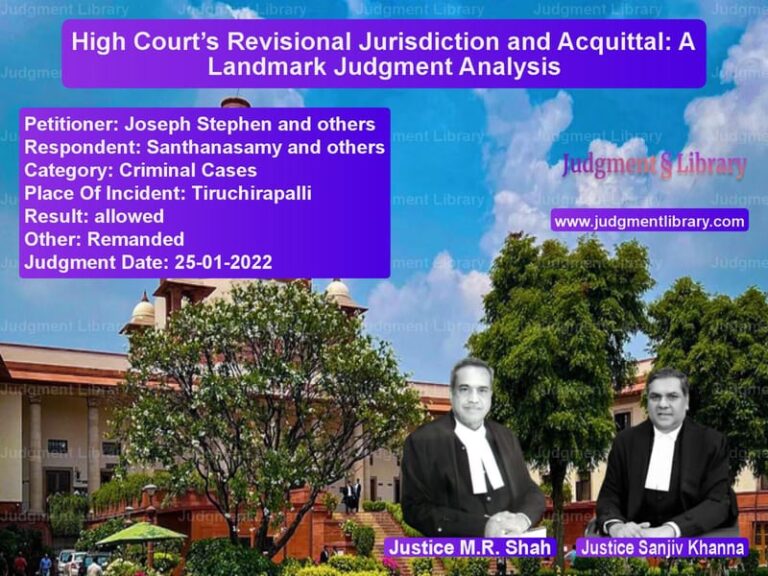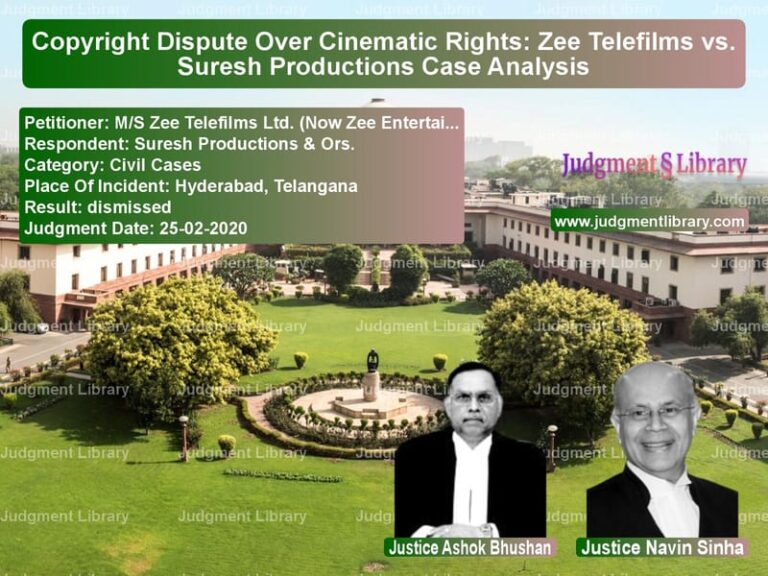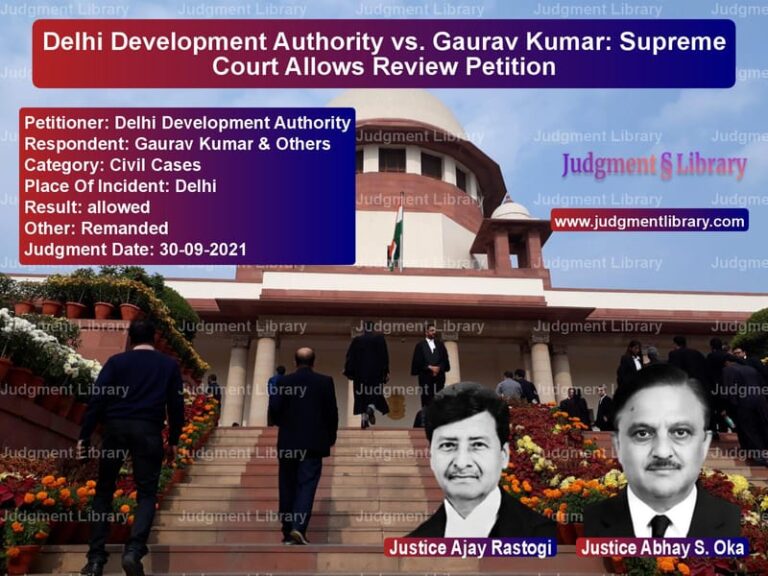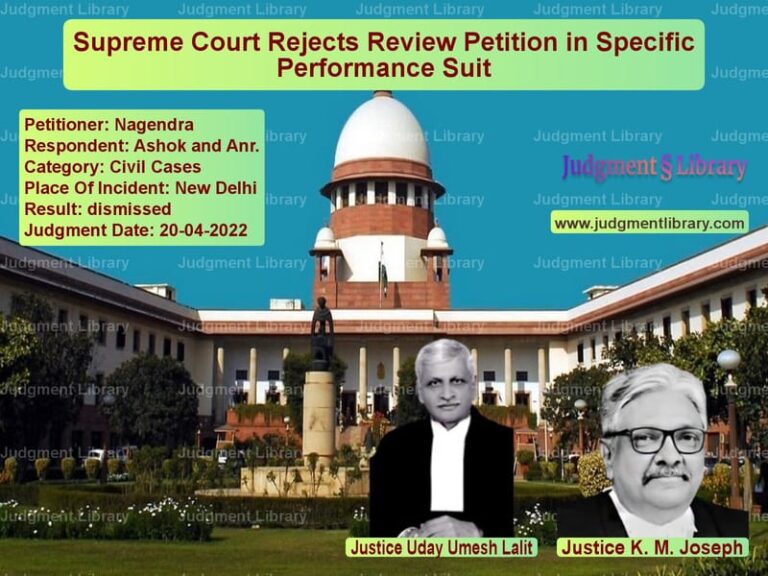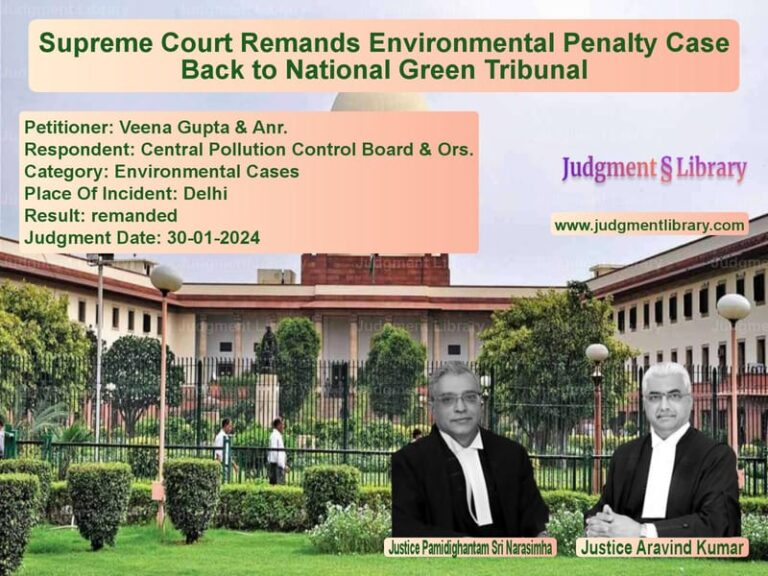Supreme Court Orders Arbitration in Solar Power Plant Dispute
The case of Ameet Lalchand Shah & Others vs. Rishabh Enterprises & Another revolves around a commercial dispute concerning the establishment of a 2 MWp Photovoltaic Solar Plant in Jhansi, Uttar Pradesh. The Supreme Court had to decide whether the multiple agreements related to the project, some of which contained an arbitration clause and some which did not, could be considered as interconnected transactions that should be referred to arbitration.
Background of the Case
The dispute began when Rishabh Enterprises (the respondent) entered into multiple agreements related to the establishment of the solar power plant:
- Two agreements with M/s. Juwi India Renewable Energies Pvt. Ltd. (Juwi India) on February 1, 2012 for purchasing power-generating equipment and engineering, installation, and commissioning of the solar plant.
- A Sale and Purchase Agreement on March 5, 2012 with Astonfield Renewables Private Limited (Astonfield) for the purchase of CIS Photovoltaic products for onward leasing to Dante Energy Pvt. Ltd. (Dante Energy).
- An Equipment Lease Agreement on March 14, 2012 between Rishabh and Dante Energy.
While the agreements with Juwi India and the Equipment Lease Agreement contained arbitration clauses, the Sale and Purchase Agreement with Astonfield did not. A dispute arose when Rishabh alleged that Astonfield and Dante Energy defaulted on payments and committed fraud by misrepresenting financial transactions.
Arguments by the Petitioners (Ameet Lalchand Shah & Others)
The petitioners, including Astonfield and Dante Energy, argued:
- All Agreements Were Interconnected: The contracts were executed as part of a single commercial transaction, aimed at commissioning the solar power plant.
- Dispute Should Be Referred to Arbitration: Since some agreements had arbitration clauses, the entire dispute should be referred to arbitration.
- Legal Precedent Supported Their Claim: The case fell within the scope of the Supreme Court’s ruling in Chloro Controls India Private Limited vs. Severn Trent Water Purification Inc., which allowed reference to arbitration for interconnected agreements.
Arguments by the Respondents (Rishabh Enterprises)
Rishabh Enterprises opposed arbitration, stating:
- Sale and Purchase Agreement Had No Arbitration Clause: The primary agreement with Astonfield did not contain an arbitration clause, and disputes related to it could not be forced into arbitration.
- Allegations of Fraud: The company accused the petitioners of fraud and misrepresentation, making the dispute ineligible for arbitration.
- High Court Precedent Supported Their Stand: The Delhi High Court had ruled that Sukanya Holdings Pvt. Ltd. vs. Jayesh H. Pandya prevented arbitration where all parties were not bound by an arbitration clause.
Supreme Court’s Observations
The Supreme Court, led by Justice R. Banumathi and Justice Ranjan Gogoi, examined the arguments and concluded that:
“In a case like the present one, though there are different agreements involving several parties, it is a single commercial project, namely, operating a 2 MWp Photovoltaic Solar Plant at Dongri, Raksa, District Jhansi, Uttar Pradesh. The Equipment Lease Agreement (March 14, 2012) for commissioning of the solar plant is the principal agreement. The other agreements are ancillary and inter-connected.”
The Court highlighted the following points:
- All Agreements Were Part of a Single Commercial Understanding: The documents demonstrated that each contract was a step toward the same commercial goal—establishing and operating a solar power plant.
- Arbitration Could Be Invoked Even If Some Agreements Lacked an Arbitration Clause: As per the Chloro Controls ruling, a composite transaction could be referred to arbitration even if some contracts lacked an arbitration clause.
- The Presence of Allegations of Fraud Did Not Bar Arbitration: The Court noted that only serious and complex fraud allegations would make arbitration inappropriate, but in this case, the allegations were primarily about financial misrepresentation.
Final Judgment
The Supreme Court ruled:
- The disputes under all four agreements should be referred to arbitration.
- The Delhi High Court’s judgment declining arbitration was set aside.
- The arbitrator would decide all claims, including those related to fraud.
The Court concluded:
“The impugned order of the High Court is set aside. The four agreements and the parties thereon are referred to arbitration.”
Impact of the Judgment
The Supreme Court’s ruling has several important implications:
- Strengthening Arbitration in Commercial Disputes: The judgment reinforces the trend of promoting arbitration for commercial agreements, even when some contracts do not explicitly contain an arbitration clause.
- Clarity on Interconnected Agreements: The ruling clarifies that if multiple agreements contribute to a single project, they can be treated as an integrated commercial transaction subject to arbitration.
- Limiting the Use of Fraud Allegations to Avoid Arbitration: The Court made it clear that not all allegations of fraud would bar arbitration, ensuring that parties cannot use such claims to bypass agreed dispute resolution mechanisms.
By ensuring that commercial disputes involving multiple agreements are efficiently resolved through arbitration, the ruling upholds the principle of business efficacy and reinforces confidence in the arbitration process.
Petitioner Name: Ameet Lalchand Shah & Others.Respondent Name: Rishabh Enterprises & Another.Judgment By: Justice R. Banumathi, Justice Ranjan Gogoi.Place Of Incident: Jhansi, Uttar Pradesh.Judgment Date: 03-05-2018.
Don’t miss out on the full details! Download the complete judgment in PDF format below and gain valuable insights instantly!
Download Judgment: Ameet Lalchand Shah vs Rishabh Enterprises Supreme Court of India Judgment Dated 03-05-2018.pdf
Direct Downlaod Judgment: Direct downlaod this Judgment
See all petitions in Arbitration Awards
See all petitions in Contract Disputes
See all petitions in Commercial Arbitration
See all petitions in Judgment by R. Banumathi
See all petitions in Judgment by Ranjan Gogoi
See all petitions in allowed
See all petitions in Remanded
See all petitions in supreme court of India judgments May 2018
See all petitions in 2018 judgments
See all posts in Arbitration and Alternate Dispute Resolution Category
See all allowed petitions in Arbitration and Alternate Dispute Resolution Category
See all Dismissed petitions in Arbitration and Alternate Dispute Resolution Category
See all partially allowed petitions in Arbitration and Alternate Dispute Resolution Category


